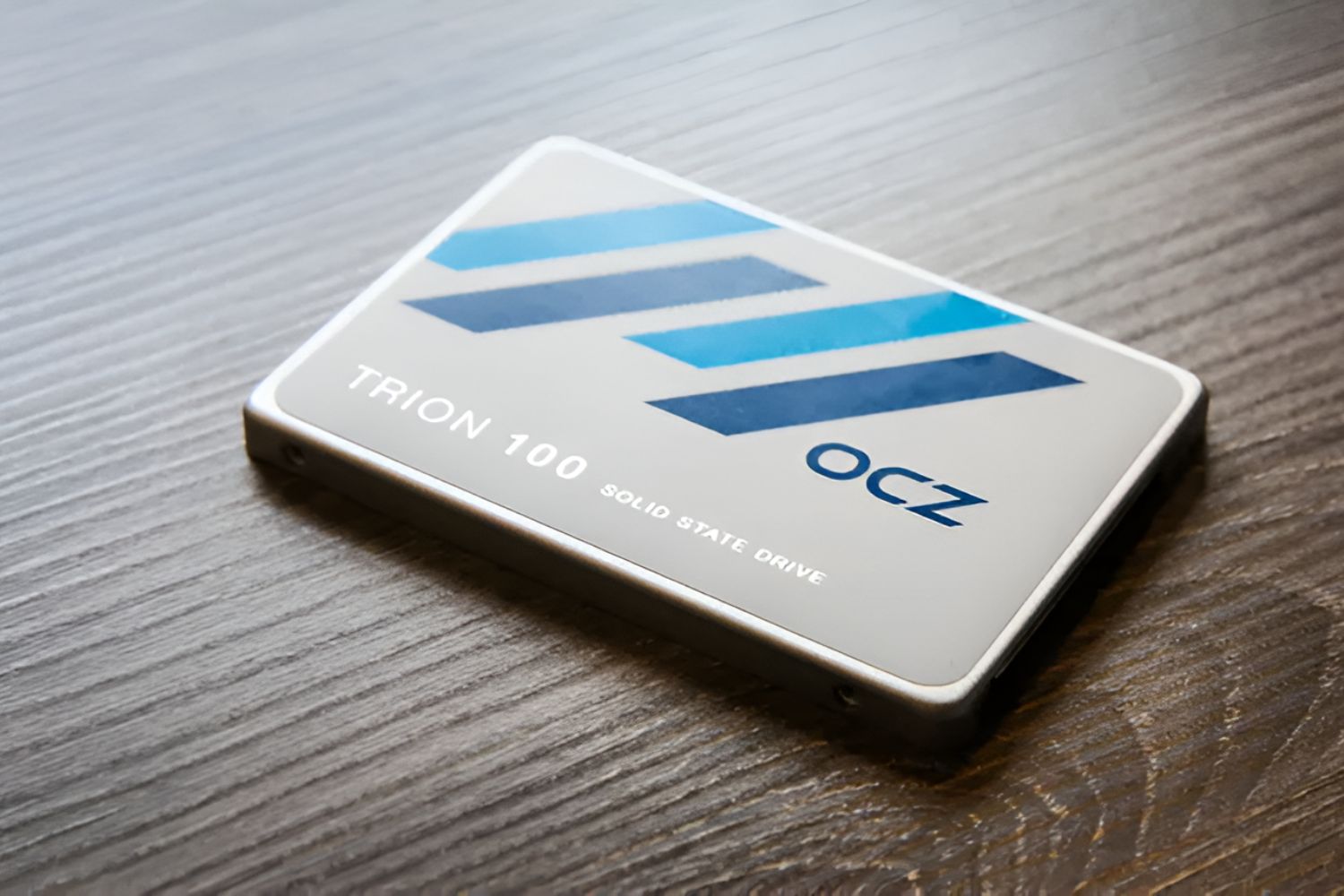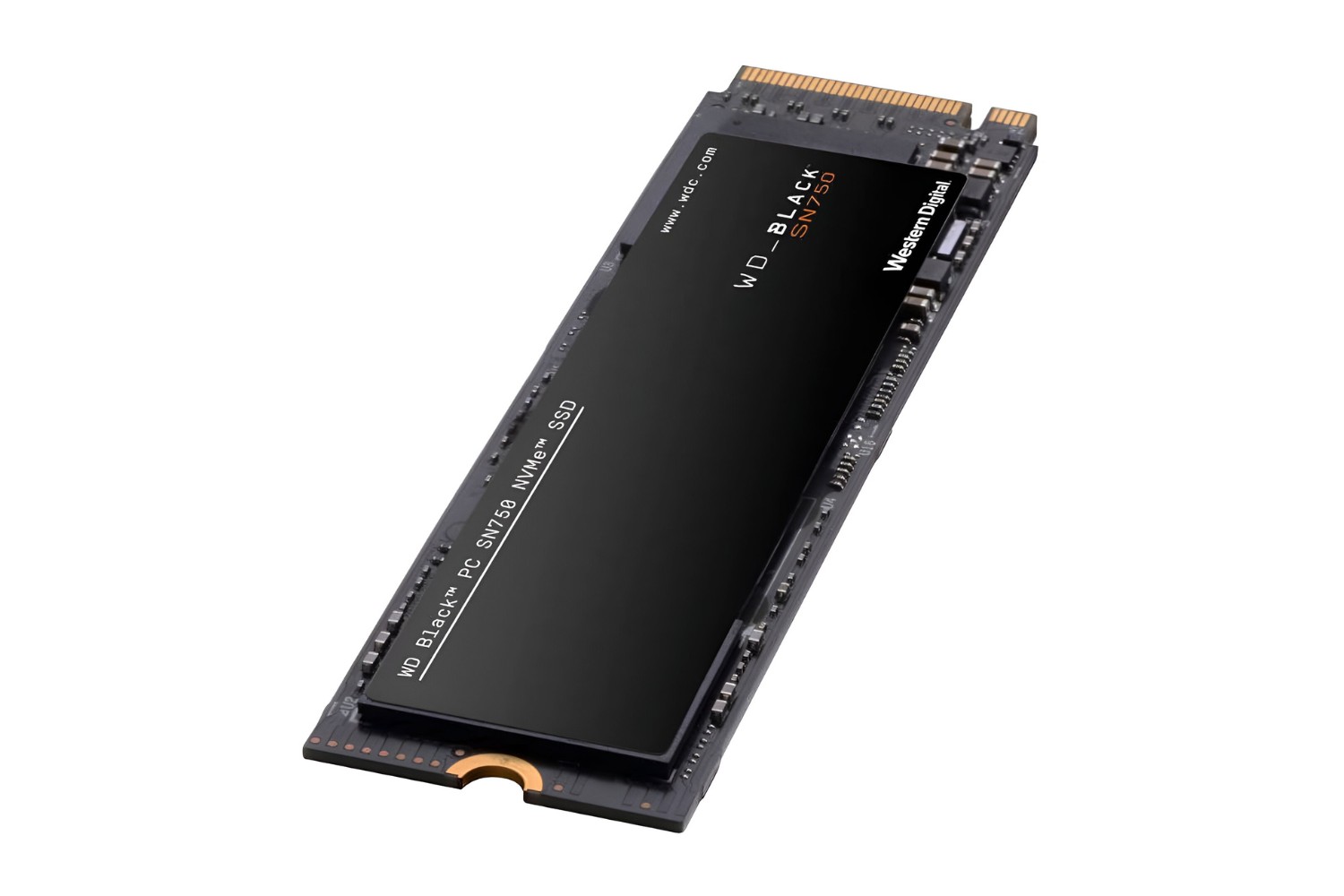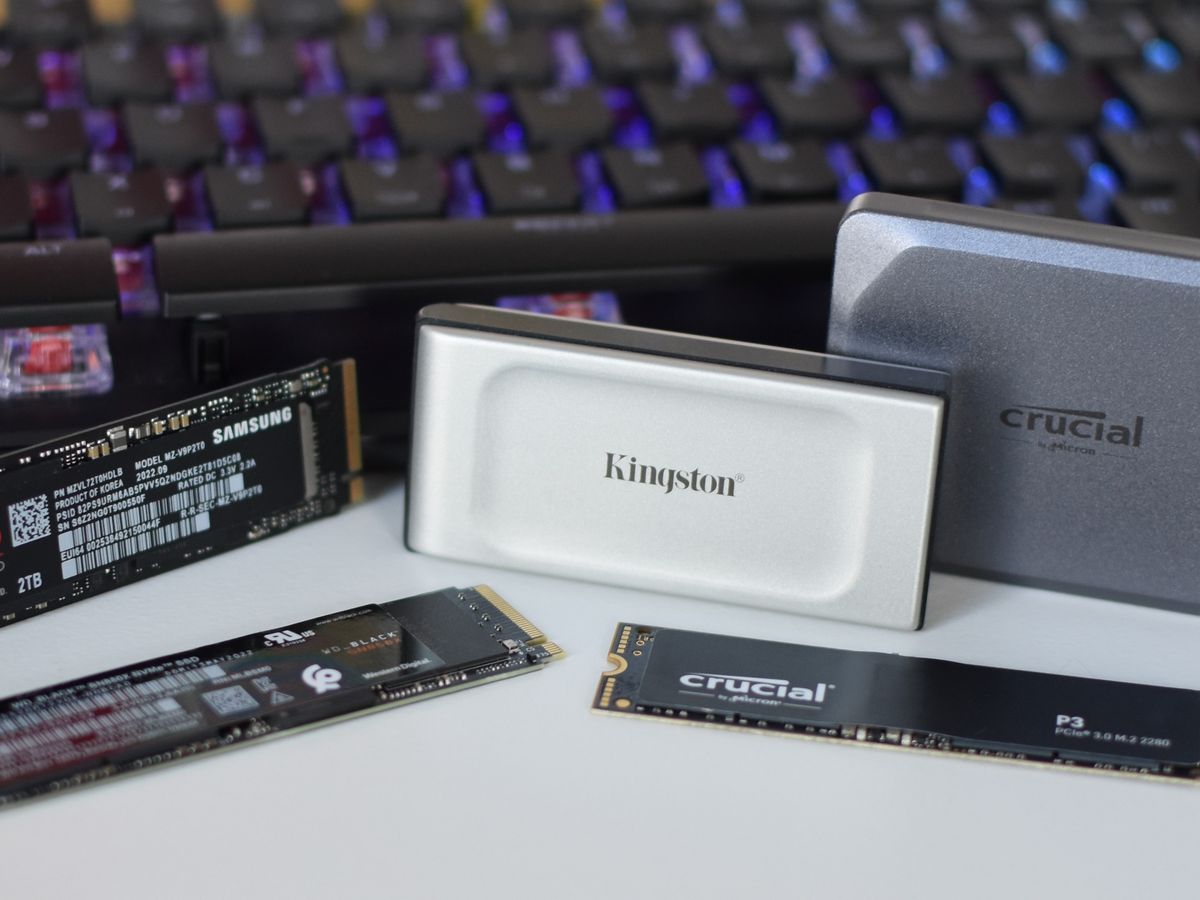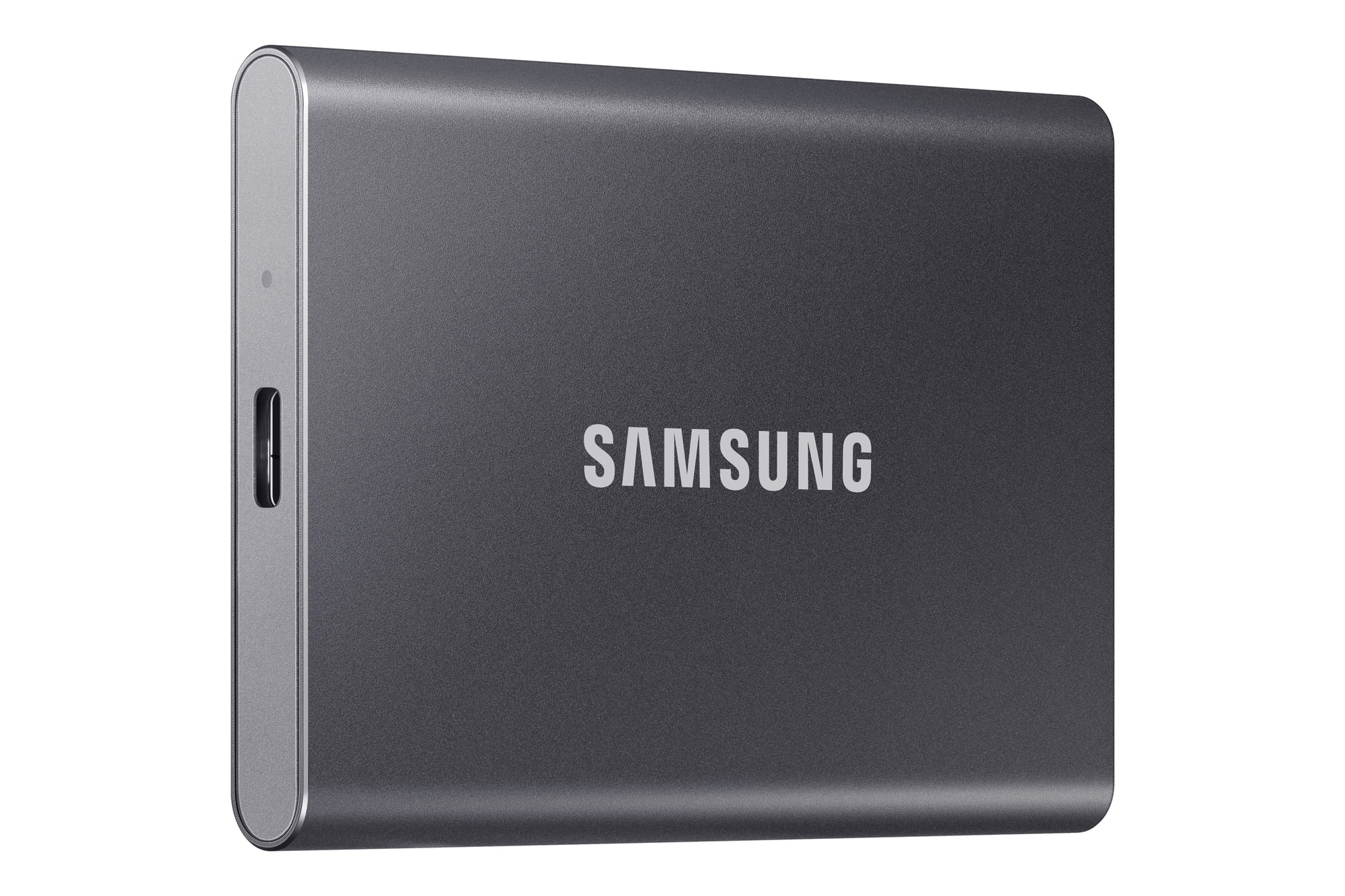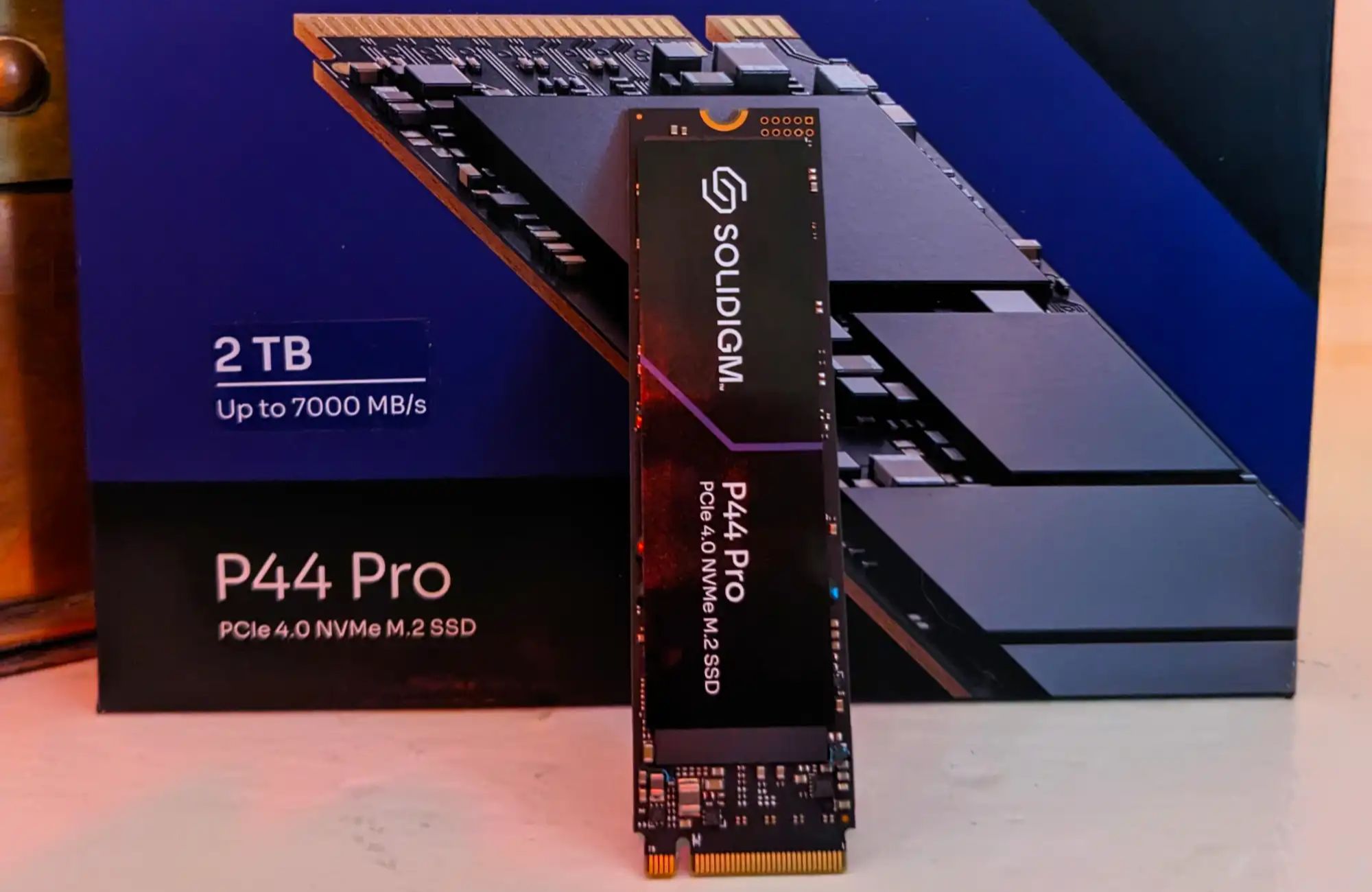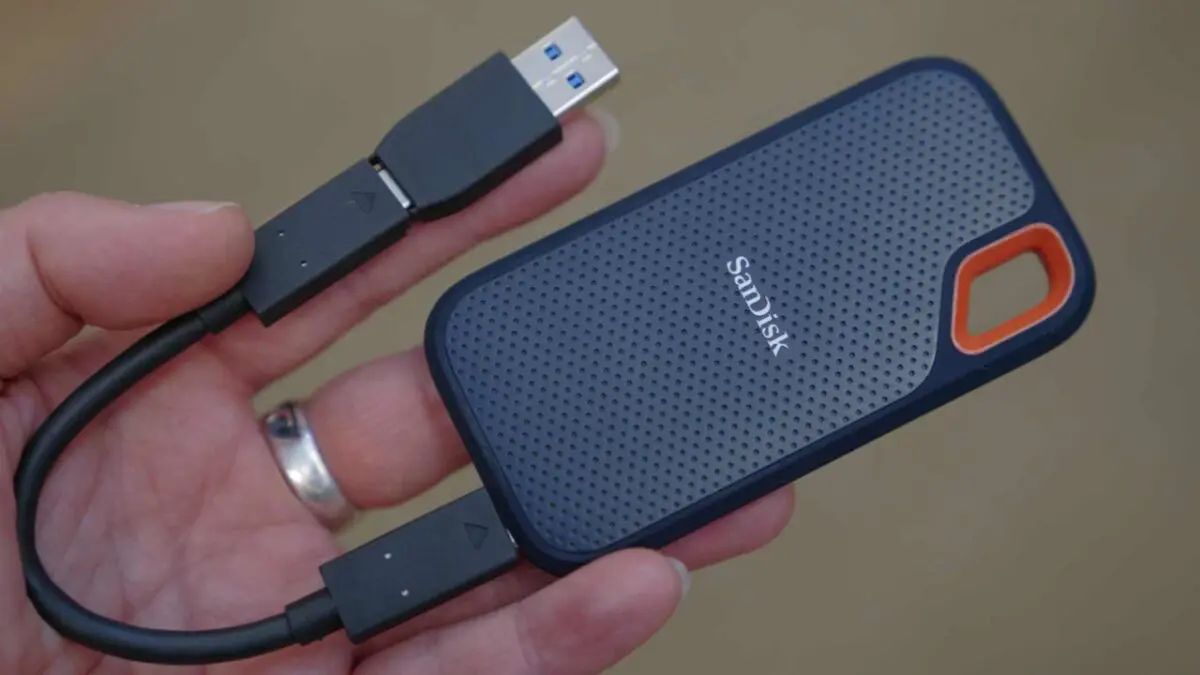Faster Load Times
One of the major advantages of using a solid state drive (SSD) for gaming is faster load times. Unlike traditional hard disk drives (HDDs) which rely on spinning disks and moving parts to read data, SSDs use flash memory technology to quickly access and retrieve information. This results in significantly reduced loading times for games.
When you launch a game, particularly those with large game files or complex graphics, it can take quite some time for the game to load on an HDD. This not only affects the initial startup of the game but also the loading of different game levels, maps, or scenes. With an SSD, however, the data transfer speed is much quicker. This means that games load almost instantaneously, allowing you to jump right into the action without any delays.
With an SSD, you can say goodbye to those frustrating loading screens that seem to take forever. Whether it’s launching a game for the first time or transitioning between different game areas, an SSD significantly reduces those wait times. This means less time spent twiddling your thumbs and more time spent immersed in your favorite games.
In addition to faster load times, an SSD can also improve the overall performance of your games. The faster data transfer speed of an SSD allows for smoother gameplay, as game assets and textures can be loaded more quickly. This means that you’ll experience fewer hiccups or stutters during gameplay, resulting in a more enjoyable and immersive gaming experience.
Furthermore, an SSD can also help reduce lag when playing online multiplayer games. With an HDD, the slower read and write speeds can lead to latency issues, causing delays and lag in online gameplay. By upgrading to an SSD, you can minimize these latency issues and enjoy a smoother and more responsive online gaming experience.
Overall, the faster load times provided by an SSD can greatly enhance your gaming experience. Not only will you spend less time waiting for games to load, but you’ll also enjoy improved performance, reduced lag, and a more seamless gameplay experience. So, if you’re tired of long loading screens and want to elevate your gaming to the next level, consider investing in a solid state drive.
Improved Game Performance
Another significant benefit of using a solid state drive (SSD) for gaming is improved game performance. Compared to traditional hard disk drives (HDDs), SSDs offer faster data access and transfer speeds, resulting in smoother and more responsive gameplay.
When playing games, especially those with demanding graphics and large file sizes, the speed at which data can be read and written to the storage device directly affects game performance. An SSD can read and write data at much higher speeds than an HDD, allowing for quicker access to game assets and reducing loading times.
With an SSD, game assets such as textures, models, and level designs can be loaded into the memory much faster. This means that games can render visuals and process game mechanics more efficiently, resulting in smoother and more realistic gameplay. Whether you’re exploring an open-world game or engaging in fast-paced action sequences, an SSD ensures that your system can keep up with the demands of the game.
Additionally, an SSD can improve the performance of games that rely heavily on data streaming. Games that dynamically load assets as you navigate through the virtual world, such as open-world or sandbox games, can benefit greatly from the faster data transfer speeds of an SSD. This results in reduced pop-in and improved streaming, allowing for a more immersive and seamless gaming experience.
Furthermore, an SSD can also enhance the performance of games that utilize complex physics calculations and artificial intelligence. These types of games require a high amount of data input and output, and an SSD can ensure that these processes are executed without any bottlenecks or delays. This allows for more accurate physics simulations, faster enemy AI responses, and overall improved game mechanics.
In summary, an SSD can significantly improve game performance by reducing loading times, enhancing data streaming, and optimizing system responsiveness. With faster data access and transfer speeds, you’ll experience smoother gameplay, reduced lag, and an overall more enjoyable gaming experience. So, if you’re looking to maximize the performance of your games, upgrading to an SSD is a worthwhile investment.
Reduced Lag and Stuttering
One frustrating aspect of gaming is experiencing lag and stuttering during gameplay. Fortunately, using a solid state drive (SSD) can help alleviate these issues and provide a smoother gaming experience.
Lag occurs when there is a delay between a user’s input and the corresponding action happening on the screen. This delay can be caused by various factors, such as slow data transfer speeds or limited system resources. With an SSD, data can be read and written at significantly faster speeds compared to a traditional hard disk drive (HDD).
When playing games, an SSD allows for quicker access to game assets and reduces the time it takes for data to be retrieved from the storage device. This means that your system can retrieve the necessary data for rendering graphics, processing game mechanics, and handling user input much more efficiently. As a result, you’ll experience reduced lag, allowing for a more responsive and immersive gaming experience.
In addition to reducing lag, an SSD also helps minimize stutters during gameplay. Stuttering occurs when the frame rate drops suddenly, causing a noticeable interruption in the smoothness of the game. This can happen when a game tries to load assets or stream data from the storage device. With an SSD, the faster data transfer speeds ensure that assets are loaded quickly and smoothly, reducing the chances of stuttering during gameplay.
Furthermore, an SSD can help prevent micro-stutters, which are small but noticeable interruptions in frame rates. These micro-stutters can be frustrating and impact the overall gaming experience. With the improved read and write speeds of an SSD, the system can quickly access and deliver data to the CPU and GPU, resulting in smoother frame rates and fewer occurrences of micro-stuttering.
Overall, using an SSD for gaming can significantly reduce lag and stuttering, providing a more enjoyable and seamless gaming experience. The faster data access and transfer speeds of an SSD ensure that game assets are loaded quickly and efficiently, minimizing interruptions and delays. So, if you’re tired of dealing with lag and stuttering in your games, upgrading to an SSD is an effective solution.
Quick Access to Game Files
One of the advantages of using a solid state drive (SSD) for gaming is the quick access it provides to game files. Compared to traditional hard disk drives (HDDs), SSDs offer faster read and write speeds, allowing for efficient retrieval and storage of game data.
When you launch a game, your system needs to access various files, including game executables, configuration files, textures, and sound files. With an SSD, these files can be accessed and loaded into memory much faster than with an HDD. This means that you can launch your games quickly and start playing without any delays.
Additionally, SSDs also provide faster loading times for saved games and game levels. When you resume a saved game or transition between different game areas, the data needs to be loaded from the storage device. With an SSD, this process is much faster compared to an HDD, ensuring that you spend less time waiting and more time gaming.
Furthermore, an SSD allows for more efficient installation and updating of games. When you install a game from a digital download or physical media, the installation process involves copying files to your storage device. With an SSD, this process is expedited, reducing the installation time significantly. Similarly, when you update a game, SSDs enable faster downloading and installation of updates, ensuring that you can start playing the latest version of the game as soon as possible.
In addition to quick access to game files, an SSD also improves the overall responsiveness of your gaming system. Tasks such as launching the game launcher, accessing in-game menus, and interacting with game settings can be executed quickly with an SSD. This enhances the overall user experience and allows for smoother navigation within the game.
Overall, the ability of an SSD to provide quick access to game files enhances the convenience and efficiency of gaming. With faster loading times, installation, and updates, you can spend less time waiting and more time enjoying your favorite games. So, if you want to optimize your gaming experience and streamline your gaming system, investing in an SSD is a wise choice.
Enhanced Overall Gaming Experience
Using a solid state drive (SSD) for gaming offers numerous benefits that contribute to an enhanced overall gaming experience. From faster load times to improved performance, an SSD can elevate your gaming to new heights.
As mentioned earlier, one of the key advantages of an SSD is its ability to reduce loading times. With faster data transfer speeds, games load more quickly, allowing you to jump into the action without any unnecessary delays. This immersive experience is further complemented by the elimination of long loading screens, ensuring a seamless transition between different game levels or scenes.
In addition to faster load times, an SSD also improves the performance of your games. The quick access to game assets and data ensures smoother gameplay, with reduced lag and stuttering. Whether you’re exploring richly detailed environments or engaging in intense battles, an SSD ensures that your gaming experience is fluid and uninterrupted.
Beyond performance enhancements, an SSD also provides quick access to game files, making the installation and updates of games faster and more convenient. With reduced installation and update times, you can dive into new gaming experiences or enjoy the latest content updates without delay.
Moreover, an SSD contributes to the overall responsiveness of your gaming system. Tasks such as launching the game launcher, accessing in-game menus, and navigating game settings become faster and more efficient. This optimized responsiveness improves the user experience and allows you to focus on the gameplay itself.
Another benefit of an SSD is increased durability and reliability compared to traditional hard disk drives. Since SSDs have no moving parts, they are less prone to mechanical failures or data loss due to physical impact. This means that your valuable game saves and progress are better protected, providing peace of mind during your gaming sessions.
Furthermore, using an SSD in your gaming system reduces both noise and heat generation. Unlike HDDs that produce noise and heat due to spinning disks and mechanical operations, SSDs operate silently and generate less heat. This creates a quieter and cooler gaming environment, enhancing your comfort during long gaming sessions.
By combining all these benefits, an SSD significantly enhances your overall gaming experience. You’ll enjoy faster load times, improved game performance, seamless file transfers, increased durability, reduced noise and heat, and a more responsive gaming system. For avid gamers seeking the ultimate gaming experience, upgrading to an SSD is a worthwhile investment.
Faster Installation and Updates
One of the notable advantages of using a solid state drive (SSD) for gaming is the faster installation and updates of games. Compared to traditional hard disk drives (HDDs), SSDs offer significantly faster data transfer speeds, resulting in a more efficient gaming experience.
When you install a game on an SSD, the process is expedited due to the higher read and write speeds. Game files are copied to the SSD much quicker, reducing the overall installation time. This means you can start playing your new game sooner and spend less time waiting for the installation to complete.
Additionally, when it comes to game updates, SSDs provide a noticeable advantage. Updates typically involve downloading and copying large amounts of data to your gaming system. With an SSD, the faster data transfer speeds enable a quicker download and installation process. This means you can update your games and access new content more promptly, without having to wait for extended periods of time.
Furthermore, SSDs excel in handling patching and game file modifications. Patching is the process of updating game files to fix bugs, add new features, or improve game performance. With an SSD, patching is faster and smoother, ensuring that you can enjoy the latest improvements and fixes without delay.
Another aspect to consider is the accessibility of downloadable content (DLC) and expansions. Many games offer additional content that can be purchased and downloaded to enhance the gaming experience. With an SSD, downloading and installing DLC becomes much faster, allowing you to access new game content and expand your gaming universe swiftly.
By reducing the time required for installation and updates, an SSD provides a more streamlined and convenient gaming experience. You can spend less time waiting and more time playing the games you love. Whether it’s installing new games or updating existing ones, an SSD significantly speeds up the process, ensuring that you can quickly immerse yourself in the world of gaming.
Seamless File Transfers
Using a solid state drive (SSD) for gaming offers the advantage of seamless file transfers. Compared to traditional hard disk drives (HDDs), SSDs excel in transferring large game files quickly and efficiently.
When it comes to transferring game files, whether it’s moving a game to a different storage device or transferring files between computers, an SSD’s faster data transfer speeds make the process much smoother. Large game installations or file transfers that can take significant time on an HDD are significantly faster with an SSD.
With an SSD, you can quickly transfer games from one storage device to another without the need to re-download or reinstall them. This is particularly useful when upgrading your gaming system or transferring games to an external storage device. Whether you’re moving to a new SSD or backing up your games, the faster read and write speeds of an SSD ensure that the transfer process is efficient and seamless.
In addition to moving game files, SSDs also enable faster file transfers within games. Modern games often require the transfer of large files, such as patches, mods, or user-generated content. With an SSD, these files can be copied or installed more quickly, ensuring minimal interruption to your gaming experience.
Moreover, SSDs are beneficial for multiplayer gaming, especially in scenarios where game files need to be shared with teammates. By quickly transferring game files to other players, SSDs help reduce the waiting time before starting multiplayer sessions. This ensures a smoother and more streamlined gaming experience, without the frustration of long file transfer times.
Furthermore, SSDs enhance the convenience of backing up and restoring game saves. Whether it’s creating a backup of your progress or recovering lost save files, the faster read and write speeds of an SSD make these processes more efficient. This ensures that your game saves are accessible when you need them, providing peace of mind and preserving your gaming achievements.
Overall, the seamless file transfer capability of SSDs simplifies game installations, enables quicker transfers of large game files, and streamlines multiplayer gaming. With faster read and write speeds, SSDs ensure that the file transfer process is efficient, reducing waiting times and improving the overall gaming experience.
Increased Durability and Reliability
Using a solid state drive (SSD) for gaming comes with the advantage of increased durability and reliability compared to traditional hard disk drives (HDDs). This heightened durability ensures a more reliable storage solution for your valuable game files.
HDDs consist of mechanical components such as spinning disks and moving read/write heads, making them more susceptible to mechanical failures. On the other hand, SSDs have no moving parts, which significantly reduces the risk of mechanical failure. This means that SSDs are more resistant to physical impact or damage caused by accidental drops or bumps.
Furthermore, the lack of moving parts in SSDs also means that they produce less noise and vibration compared to HDDs. This creates a quieter and calmer gaming environment, allowing you to fully immerse yourself in the gaming experience without the distraction of loud mechanical noises.
In terms of reliability, SSDs offer a longer lifespan as they do not wear out as quickly as HDDs. HDDs rely on mechanical operations, which can lead to wear and tear over time. SSDs, on the other hand, use flash memory technology, which allows for a greater number of read and write cycles. This means that SSDs are more durable and can withstand a higher amount of data transfer without performance degradation.
Moreover, SSDs are less prone to data loss caused by physical damage. The absence of moving parts eliminates the risk of a head crash, which can cause irreparable damage to the data stored on an HDD. With an SSD, your game files and saves are better protected, reducing the risk of losing progress or valuable gaming data.
Additionally, SSDs have built-in error correction and wear leveling algorithms. These features help to ensure the integrity of your data by detecting and correcting any errors that may arise during storage or retrieval. This provides added peace of mind, knowing that your game files are stored securely and reliably.
Overall, the increased durability and reliability of SSDs make them an excellent choice for gaming. With no moving parts, SSDs are more resistant to physical damage, produce less noise, and offer a longer lifespan compared to HDDs. The secure storage of your game files and improved overall reliability contribute to a worry-free and enjoyable gaming experience.
Reduced Noise and Heat
One of the advantages of using a solid state drive (SSD) for gaming is the reduction in both noise and heat production compared to traditional hard disk drives (HDDs). SSDs, with their lack of moving parts, offer a quieter and cooler gaming experience.
HDDs have spinning disks and mechanical components that generate noise during operation. The constant spinning and movement of the disks can produce noticeable sound, especially during intense gaming sessions. In contrast, SSDs have no moving parts, resulting in silent operation. This creates a more immersive gaming environment where you can focus on the sounds of the game itself without being distracted by the noise of the storage device.
Moreover, the absence of moving parts in SSDs also leads to a reduction in vibration. HDDs, with their spinning disks, can create small vibrations, which can sometimes be felt through the computer case. These vibrations can be annoying and disrupt the overall gaming experience. SSDs, on the other hand, do not produce any vibrations, ensuring a smoother and more stable gaming environment.
Additionally, SSDs generate less heat compared to HDDs. The mechanical operations within HDDs, such as the rotation of disks and movement of read/write heads, create friction and heat. This heat needs to be dissipated, usually with the help of cooling fans or heat sinks. In contrast, SSDs generate significantly less heat due to their lack of moving parts. This leads to cooler operating temperatures within your gaming system.
The reduction in heat production provided by SSDs can have several advantages. First, it helps to maintain optimal operating temperatures for other components within your gaming system. Excessive heat can cause performance degradation or even damage to sensitive hardware. By using an SSD, you contribute to a cooler overall environment, promoting the longevity and reliability of your gaming system.
Furthermore, the reduced heat generation also benefits the acoustics of your gaming setup. Heat can cause cooling fans to operate at higher speeds, resulting in increased fan noise. By using an SSD, the lower heat generation reduces the need for aggressive fan cooling, thus contributing to a quieter gaming environment.
In summary, using an SSD for gaming leads to reduced noise and heat production compared to HDDs. The absence of moving parts in SSDs ensures silent operation, allowing for a more immersive gaming experience. The lower heat generation of SSDs contributes to cooler operating temperatures and a quieter gaming setup, promoting optimal performance and a comfortable gaming environment.
Longer Lifespan
Using a solid-state drive (SSD) for gaming offers the benefit of a longer lifespan compared to traditional hard disk drives (HDDs). The design and technology of SSDs contribute to their increased durability and longevity, making them a reliable choice for storing your valuable game files.
HDDs rely on mechanical parts, such as spinning disks and reading heads, which are susceptible to wear and tear over time. As these components move and come into contact with each other, they can experience physical degradation. On the other hand, SSDs do not have any moving parts. They utilize flash memory technology, which allows for faster, more reliable data storage without the risk of mechanical failure.
Because SSDs have no moving parts, they are better able to withstand physical impacts or shocks. Accidental drops or bumps that can damage an HDD are less likely to impact the performance or integrity of an SSD. This increased durability means that your game files are better protected, reducing the risk of data loss due to physical damage.
Additionally, the lack of mechanical movement in SSDs also results in less wear and tear on the device. HDDs have limited lifespans due to the finite number of times their spinning disks can read and write data. Over time, this mechanical operation leads to degradation of the disks, resulting in decreased performance and potential data loss. SSDs, on the other hand, are not limited by the same mechanical constraints. They can handle a greater number of read and write cycles, making them more resilient and durable for long-term use.
Moreover, SSDs employ advanced wear leveling algorithms. These algorithms distribute data evenly across the memory cells, ensuring that no particular area of the SSD becomes overused. By evenly distributing data, SSDs can mitigate the effects of wear and prolong the overall lifespan of the drive. This enhances the reliability and longevity of your gaming storage solution.
The longer lifespan of SSDs is particularly advantageous for gaming enthusiasts who frequently install, uninstall, and update games. By using an SSD, you can continue to enjoy seamless gameplay and data integrity for years to come, without worrying about the wear and tear that can affect the performance and longevity of traditional HDDs.
In summary, SSDs offer a longer lifespan compared to HDDs due to their lack of moving parts and advanced wear leveling algorithms. The durability and resilience of SSDs make them a reliable storage option for your valuable game files. By choosing an SSD for gaming, you can enjoy extended longevity, enhanced data integrity, and peace of mind knowing that your games are stored on a robust and long-lasting storage device.









